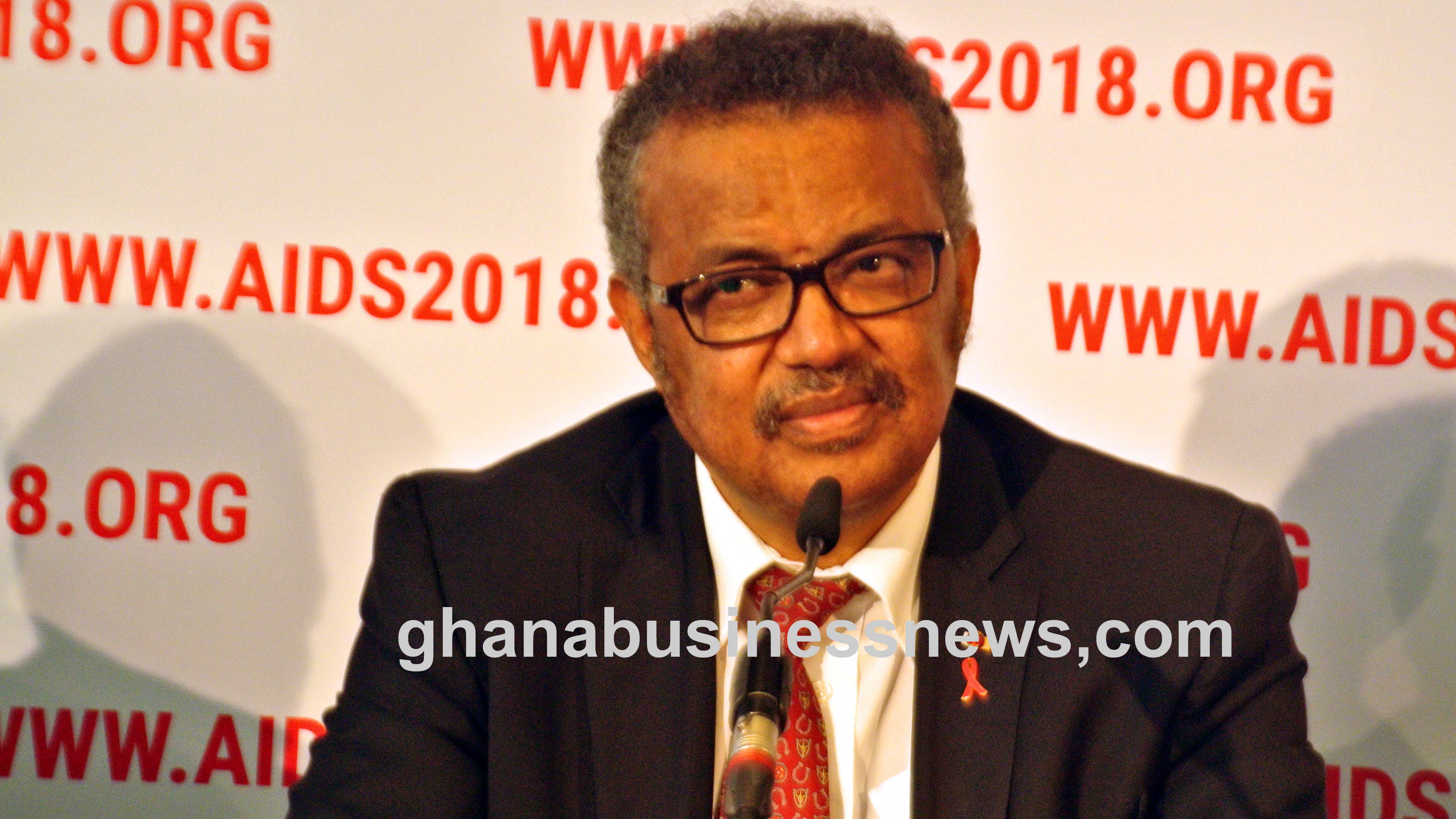
It is bad enough that people are dying of AIDS but no one should die of ignorance -Elizabeth Taylor
The air-conditioned VIP bus in which I was comfortably seated was moving at a faster pace than I anticipated. The Accra-Kumasi road was very bumpy and the vigorous shaking of the bus compelled most of the seated passengers to fasten their seat belts properly.
It was approximately 11:30pm and I could not stop myself from attending to nature's call for sleep. The sudden halt of the bus jolted me awake. We had narrowly escaped bumping into the vehicle ahead of us which had somersaulted into a ditch.
Being the only moving bus at the time of the accident, we all alighted to check out on the somersaulted bus and its passengers. The Ghanaian hospitality and unity was at its peak as we all joined hands in bringing out the injured people, with body and clothes soaked in blood. A few of us with knowledge on first aid helped with the cleaning and tying up of the wounds of the injured people. These we did without any protective wear.
About 30 minutes later, three ambulances arrived and most of the injured victims were taken away for treatment. It is about three years now since that incident happened and I had totally forgotten about it, only to visit the hospital a week ago to be diagnosed HIV positive.
I am a virgin and very cautious about things pertaining to my health. Now the big question is: how did I come into contact with the Human Immunodeficiency Virus (HIV)? --a question that lingers on my mind for some time now.
DEFINITIONS/ HISTORY
HIV/AIDS in Ghana has been tilted to the bracket of promiscuity, prostitution and immorality because the mode of education mainly describes it as a sexually transmitted disease, leaving behind much vital information about other modes of transmission.
HIV is considered a pandemic and a major global health issue, but which is mostly prevalent in sub-Saharan Africa. It is believed to have originated in West-Central Africa during the late 19th and early 20th century.
There is the misconception that immediately one is diagnosed HIV positive, then one would die there and then. That is not, however, the case.
HIV is a virus that attacks and contaminates the cells of the immune system--the body's natural defense system--and renders the system weak, leading to immune deficiency, meaning the immune system becomes deficient and can no longer fulfill its role of fighting against infections and diseases.
HIV is not AIDS and AIDS nevertheless cannot be referred to as HIV. AIDS is the most advanced stage of HIV infection. It is at that point that the infected individual becomes susceptible to opportunistic diseases such as cancers, diarrhoea, cough/tuberculosis (TB), skin disorder and genital wax among various treatable diseases-- owing to the breakdown of the immune system.
HIV/AIDS is a threat to the world's human resource most especially in West Africa. According to recognized health organizations across the world, HIV/AIDS accounted for an estimated number of 1.2 million deaths, out of 37.3 million people who were living with it in the year 2015.
MODE OF TRANSMISSION
Undoubtedly, the most frequent mode of HIV transmission is primarily by unprotected sex (including anal and oral sex) with an infected person; but one can also be infected through contaminated blood transfusions, hypodermic needles, mother to child during pregnancy, delivery or breastfeeding (known as vertical transmission), sharing of contaminated needles, syringes, surgical equipment or other sharp instruments as well as body fluids, while there is no risk if exposed to faeces, nasal secretions, saliva, tears, urine or vomit unless these are contaminated with blood infections.
In other words, the public has not fully appreciated the fact that there are other modes of transmission of the virus. Thus in Ghana, HIV is perceived to be the end result of promiscuity and everyone with HIV is either immoral or a prostitute.
It has, however, been established that children become during circumcision by local practitioners popularly known as "wanzams"?, while others become infected in the barbering and hairdressing saloons through the use of unsterilized working materials. HIV, it has been established, is transmitted through needle pricks, ear piercing, tattooing and public use of enema("bentua")? And here comes my situation where, out of benevolence and goodwill, I decided to help distressed accident victims? And what those living in polygamous marriages, are they not prone to the virus as compared to a one-man one-woman marriage? What of faithful wives who get infected through their husbands who live abroad? Are all placed in the immoral bracket connection of HIV/AIDS?
TREATMENT
Since the discovery of HIV/AIDS in the 1920's, there has not been any effective scientifically proven cure for it. Treatment of HIV/AIDs consists of Highly Active Antiretroviral Therapy (HAART) which slows the progression of the disease. Its treatment also includes preventive and active treatment of opportunistic infections. Also, one can go in for a post-exposure prophylaxis within 2 hours after coming into contact with blood irrespective of the blood status, that is, if it is infected or not to be on a safer side.
Post-Exposure Prophylaxis (PEP) is a course of HIV drugs taken to virtually eliminate the risk of getting HIV and stopping the virus from establishing itself in your body if taken correctly. Nevirapin alongside other anti-retroviral medications are currently being used for use for PEP. It should be noted that, if I had run to the hospital for a PEP treatment immediately after helping those accident victims, I would have been saved from acquiring HIV/AIDS. One can also go in a Pre-Exposure Prophylaxis (PrEP) before attending to HIV patients or visiting a HIV prone area. A Pre-Exposure Prophylaxis (PrEP) is done before an individual gets into contact with infected blood while a Post-Exposure Prophylaxis is done immediately after an individual gets into contact with infected blood.
The World Health Organization and the United States recommends antiretroviral for people of all ages including pregnant women as soon as the diagnosis is made. It is recommended by recognized health organizations across the world that, immediately treatment begins, there should be no "breaks" or "holidays" as it is a continuous process otherwise the body system of the victim will develop resistance against the drug, meaning the drug cannot be used again to fight the HIV virus. HIV/AIDS patients are required to have a generally healthy diet to boost their immune systems aside the antiretroviral therapy.
Benefits of treating the HIV infection is a decreased risk to progression of AIDS and a decreased risk of death. A person infected with the virus can live a maximum of 11 years without treatment until it develops into AIDS.
In Ghana, drugs such as nevirapin, lamevudin and zidovudine and its related drugs are prescribed to patients depending on their body reactions or acceptance to the drug which is an everyday dosage treatment. The treatment advices against the intake of alcohol or herbal medications since it can be reactive and cause other health implications. It has also been indicated of recent times that all people with HIV/AIDS are to follow compulsory treatment procedure to help save more lives and prevent HIV/AIDS related deaths.
RELIGIOUS PERSPECTIVE
Some religious authorities have publicly declared their opposition to the use of contraceptives of all kinds. They have stated their stance for total abstinence from sexual intercourse if not married. Although there has been no approved cure for HIV/AIDS, some religions believe it can be cured when their style of beliefs and practices are observed by the victims. Other religious groups also ostracize the victims of HIV/AIDS with the belief that they have gone against the rules of God or religion by being promiscuous hence the infection, while others see it as a curse and punishment from God for their misconduct against the mode of worship.
HIV AND GENDER
HIV disproportionately affects women and adolescent girls because of their unequal body type in society. HIV is not based on gender inequality, however, it entrenches gender inequality as more women are vulnerable to its impact. Females tend to be more susceptible to acquiring the virus as compared to males. This is due to the anatomy of females who are the receptacles when it comes to sexual intercourse. A pregnant woman is required to have a compulsory HIV test whereas the man is left to go scot-free with no test. There have been many incidents where women get infected with the disease unknowingly through their husbands. This is mostly because the men are not compulsorily mandated to test for HIV/AIDS, as i they don't get pregnant and do not require compulsory test.
Also, the cultural and traditional settings of most African countries, especially Ghana hinders access to education by females which has led to the high rate of HIV/AIDS in women as compared to men. Young adolescent females have little or no education about the infection; how it is acquired, its preventive measures or its dire repercussions. Most often, in such parts of the world, it is considered a "taboo" to publicly discuss issues pertaining to sex and their related health diseases hence the people lack information ("for lack of knowledge, my people perish" hosea 4:6) .
They are not thought on how to protect themselves with the use of contraceptives if there be any need for sexual intercourse.
Last but not least, poverty which compels most poor parents to push their female children into early marriages is also another factor for the increasing number of women with HIV/AIDS. The men in these cases are locally called "sugar daddies" as they tend to be thrice the ages of the young adolescent females. They also have a number of wives already.
Many of them acquire the infection from past relationships they have had and sweetly pass it on to the young adolescents who have been forced into marriage.
Today, women constitute more than half of the total number of people living with HIV/AIDS across the world not because they are promiscuous or unfaithful but because they do not have the same level playing field that gender activists have been calling for. Here if a woman must do compulsory testing because of pregnancy, the man must as well be subjected to same to allow for fairness and non-discrimination.
GOVERNMENT INTERVENTIONS
There have been several interventions by governments and other stakeholders across the globe on HIV/AIDS and its related diseases. One of such interventions is that of the Ministry of Health of Ghana in a joint partnership with the United Nations Programme on HIV/AIDS (UNAIDS) which has affirmed government's commitment to scale up implementation through advocacy on prevention of mother to child transmission and treatment of persons infected with AIDS.
Thus, the launch of Agenda 90-90-90 which aims at reaching 90% of people across the globe living with HIV diagnosed by 2020; 90% of diagnosed people on antiretroviral treatment by 2020, and 90% of people in treatment with fully suppressed viral load by 2020.
This implies that, 90% of all people living with HIV will know their status, 90% of all people diagnosed with HIV infection will receive sustained antiretroviral therapy and 90% of all people receiving antiretroviral therapy will have viral suppression.
As part of governments intervention, an amount of US$484 million has been approved by the board members of UNAIDS to aid in strengthening the coherence and effectiveness of UNAIDS support to countries of which Ghana is a part.
It is exciting to note that, 80% of children born to HIV/AIDS expectant mothers test negative--meaning that government interventions on mother to child transmission is making progress and needs to be encouraged and intensified to ensure that mother-child transmission is brought to its barest minimum, if not eradicated.
Indeed, the Akufo-Addo administration has stated that despite the persistent challenges, including funding and commodity gaps, it would adopt the 2015 World Health Organization's guidelines to test and offer immediate treatment to all persons living with HIV in Ghana as part of its efforts to achieve the 90-90-90 Agenda target. In this vein, government has trained more than 150,000 teachers in public schools to integrate HIV education into their curricula and over 300,000 also trained as peer educators across the country.
The Minister of Health, Mr Kwaku Agyeman-Manu, has also disclosed his Ministry's intention to train persons to handle HIV patients at all levels of the health service delivery, including the Children's Health Insurance Programme (CHIP) compounds, so as to get closer to the people for prevention, early detection, diagnoses and treatment.
CONCLUSION
The immorality bracket associated with HIV/AIDS has survived since its inception in the 1980's hence glossing over other vital modes of transmission of the infection and increasing ignorance in unsuspecting victims.
Again, intensive education on the other modes of transmission aside those affiliated with sex and promiscuity should be aired and broadcast on the various media platforms as well as inculcated into the curriculum of students to broaden their horizon on the issue. In addition, HIV/AIDS tests should be mandatory for both sexes to help regulate and reduce the increasing number of people living with HIV/AIDS in our part of the world.
HIV/AIDS patients are not to be ostracized but to be loved. We are to help and encourage them to take on treatments that will sustain their immune systems thus, saving many lives. With one mind, one call and one agenda, we can. Unity is strength.
The writer in an officer of Information Services Department
Read Full Story


















Facebook
Twitter
Pinterest
Instagram
Google+
YouTube
LinkedIn
RSS